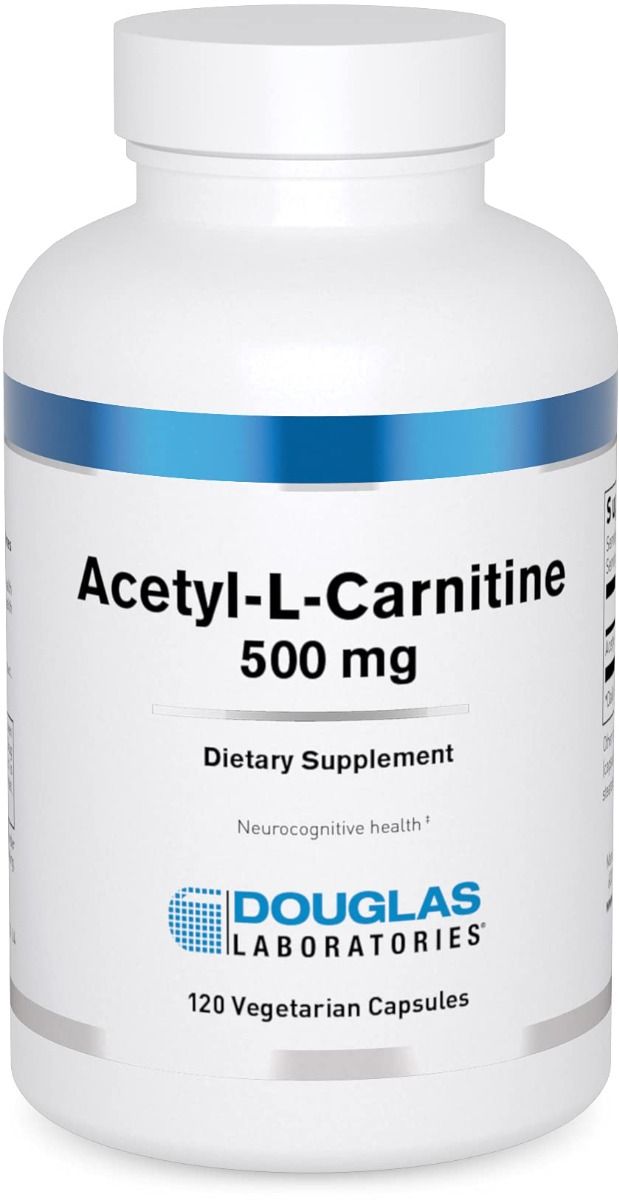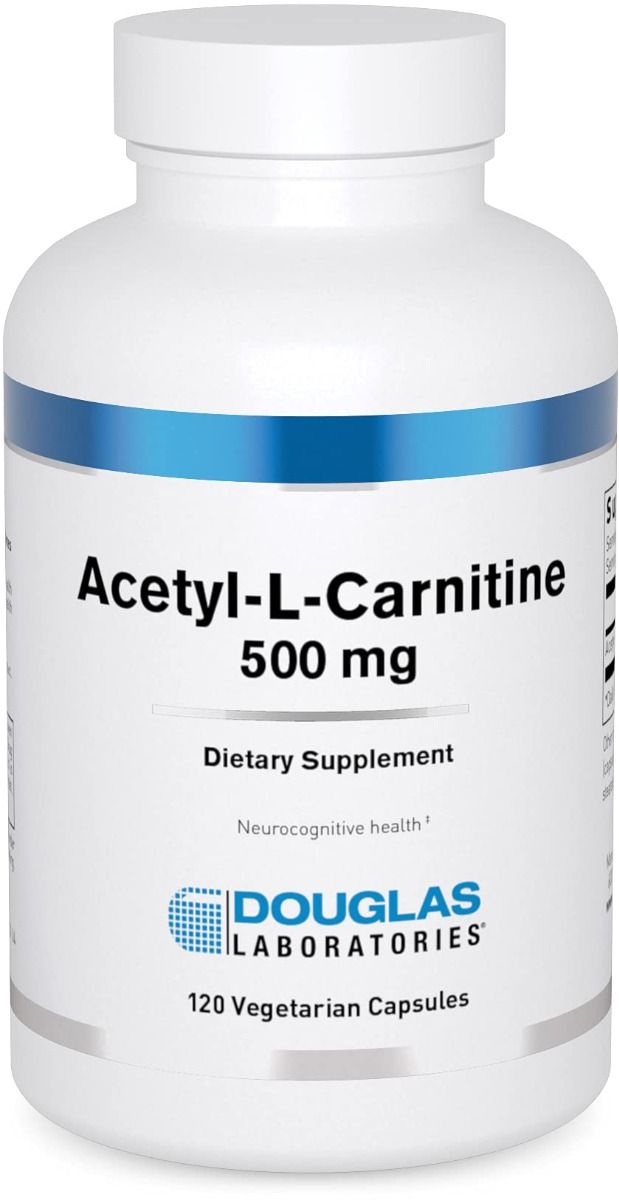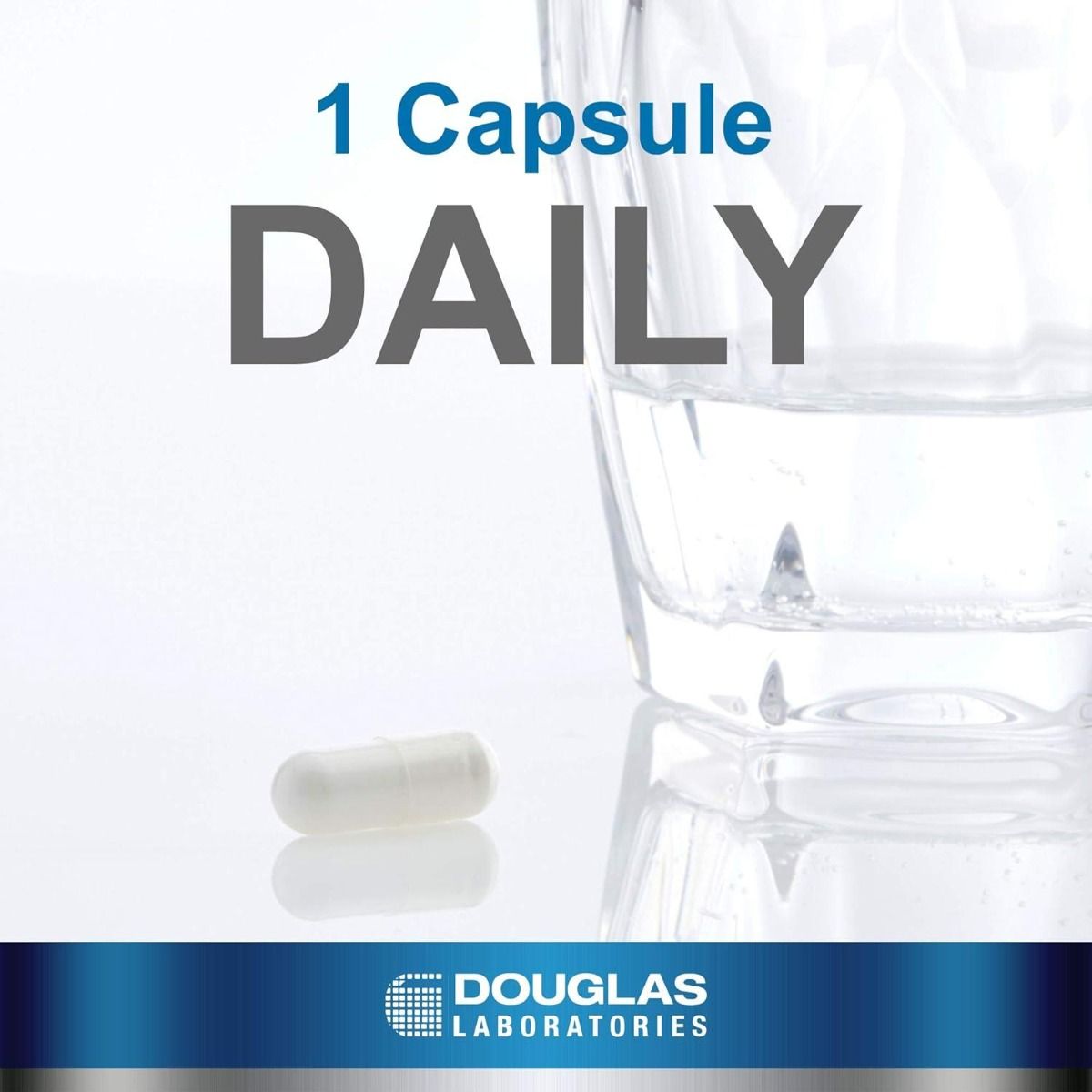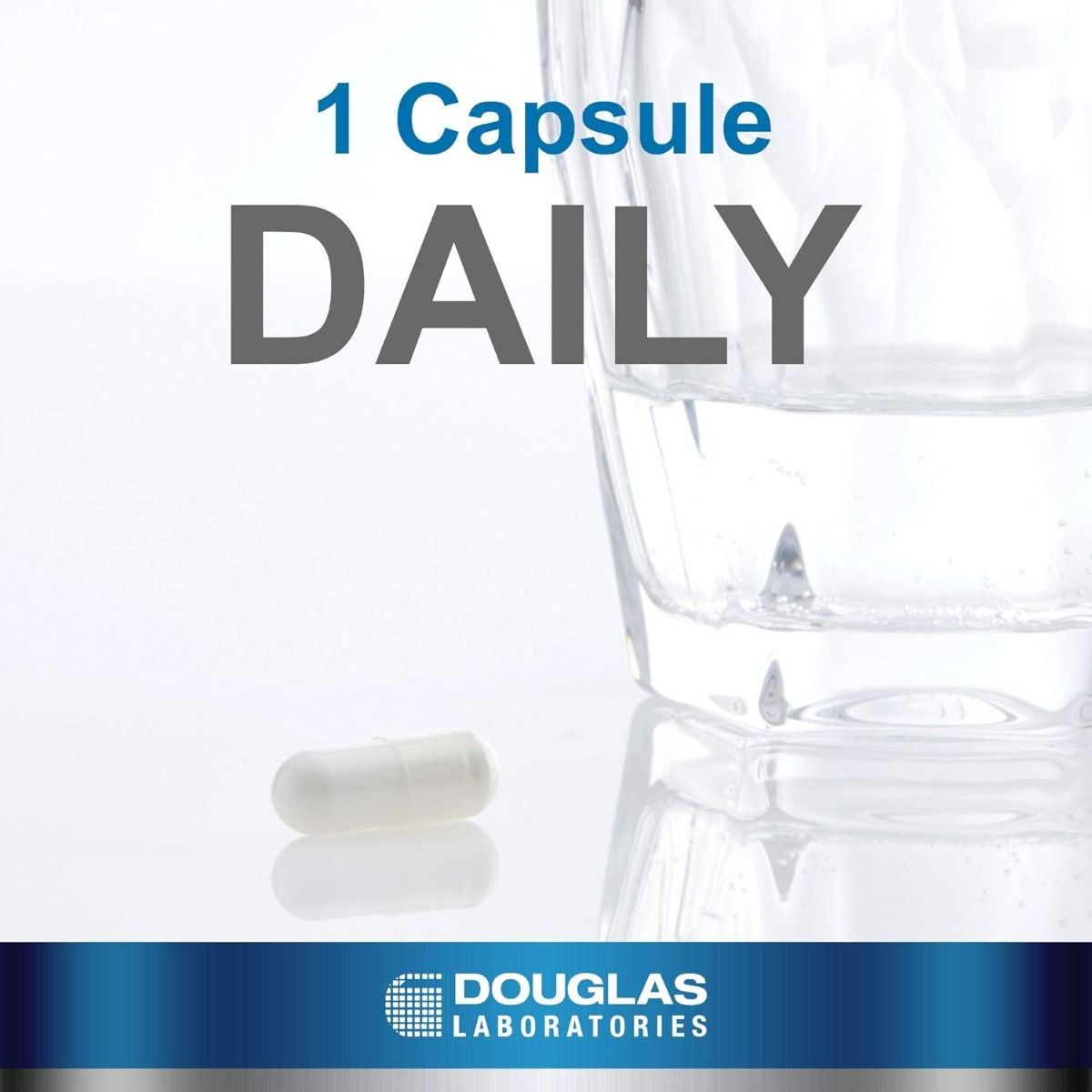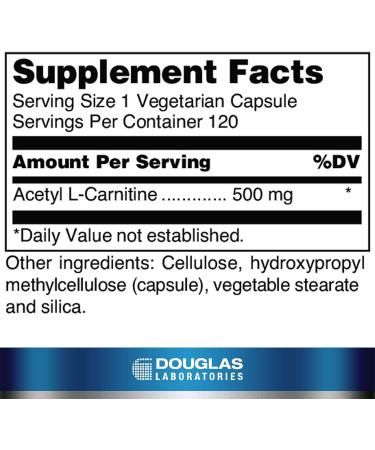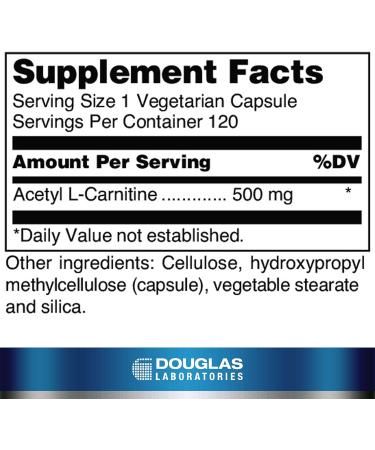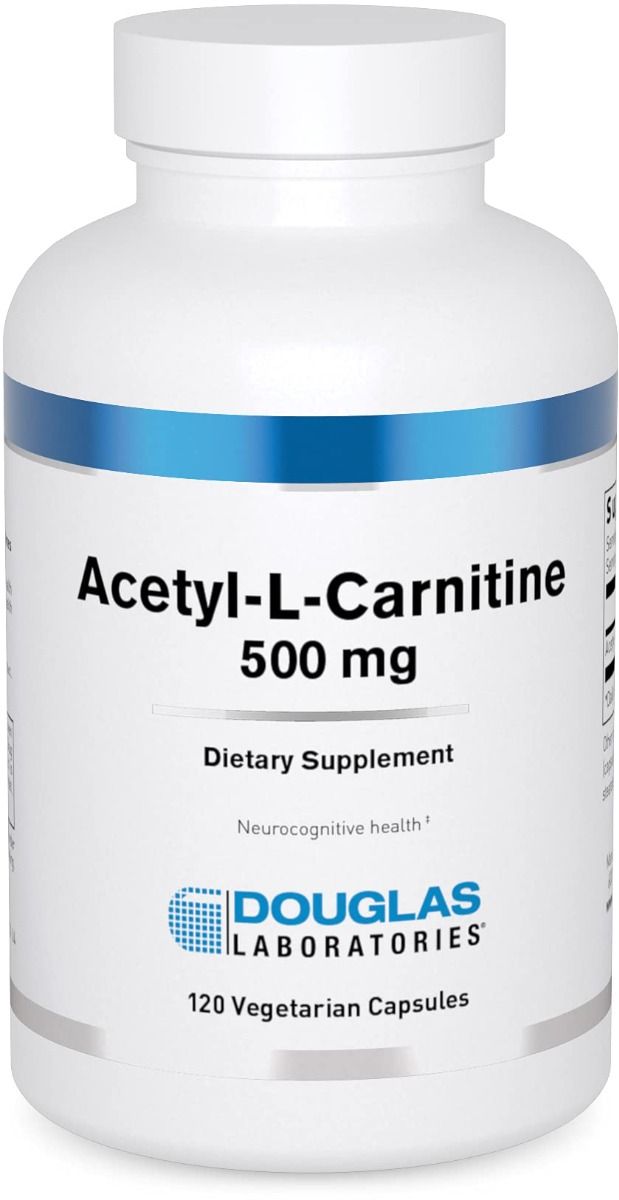Acetyl-L-Carnitine 500 MG 120 Veggie Caps
Couldn't load pickup availability
Shipping & Return
Shipping & Return
Shipping
Shipping and handling charges are a flat rate of $4.95 for all Standard Shipping method orders and FREE for orders over $75 within the contiguous U.S. only, excluding Hawaii, Alaska & Puerto Rico.
30 Day Hassle Free Returns
If you’re not satisfied with our product, simply contact us and we’ll give you a full, 100% hassle-free refund.
Description
Description
Acetyl-L-carnitine capsules, provided by Douglas Laboratories, each contain 500 mg of pure acetyl-L-carnitine.
Functions
Acetyl-L-carnitine plays a key role in maintaining normal brain and nerve function during aging, as many well-designed human and animal studies have shown consistently. Acetyl-L-carnitine is a naturally occurring metabolite of L-carnitine, and both are present in the diet, particularly in foods of animal origin.
In most tissues of the body, both L-carnitine and acetyl-L-carnitine are involved in fatty acid oxidation. They are part of the so-called carnitine shuttle. L-carnitine shuttles fatty acids from the cytosol (the cell fluid) into the mitochondria (the cells powerhouses) for oxidation and energy production. The main end products of fatty acid oxidation are energy (in the form of NADH), and acetyl groups. Most of these acetyl groups are further oxidized in the mitochondrias Krebs cycle, but some are needed in the cytosol for producing other important metabolites. Acetyl-L-carnitine provides a way to carry these acetyl groups through the mitochondrial membranes back out into the cytosol.
In brain and other nerve tissues, this acetyl group export by acetyl-L-carnitine out of the mitochondria into the cytosol is important in maintaining normal levels of acetyl groups for the production of acetylcholine and other acetylated neurotransmitters, that are so crucial for normal brain and nerve function. The enzyme that makes acetylcholine from acetyl groups and choline is the choline acetyl transferase. The activity of this important enzyme has a tendency to decline with age, causing low acetylcholine levels which in turn are thought to contribute to the impairment of brain function that is associated with aging. Besides maintaining normal acetylcholine levels, several studies indicate other neuroprotective benefits of acetyl-L-carnitine, which may be due to at least three modes of action. First, acetyl-L-carnitine has been shown to maintain cellular membrane stability, and to restore age-related membranal changes. Acetyl-L-carnitine can also act as an antioxidant, scavenging harmful superoxide radicals. Since superoxide can damage membrane lipids, this may explain acetyl-L-carnitines membrane protective properties. Second, animal studies indicate that acetyl-L-carnitine preserves normal levels of nerve growth factor in brain tissue during aging. Third, human studies indicate that acetyl-L-carnitine increases cerebral blood flow. In summary, acetyl-L-carnitine is a naturally occurring compound that supports normal brain and nerve function during aging through various mechanisms. These include its actions on acetylcholine synthesis, membrane stability, nerve growth factor production, and cerebral blood flow.

